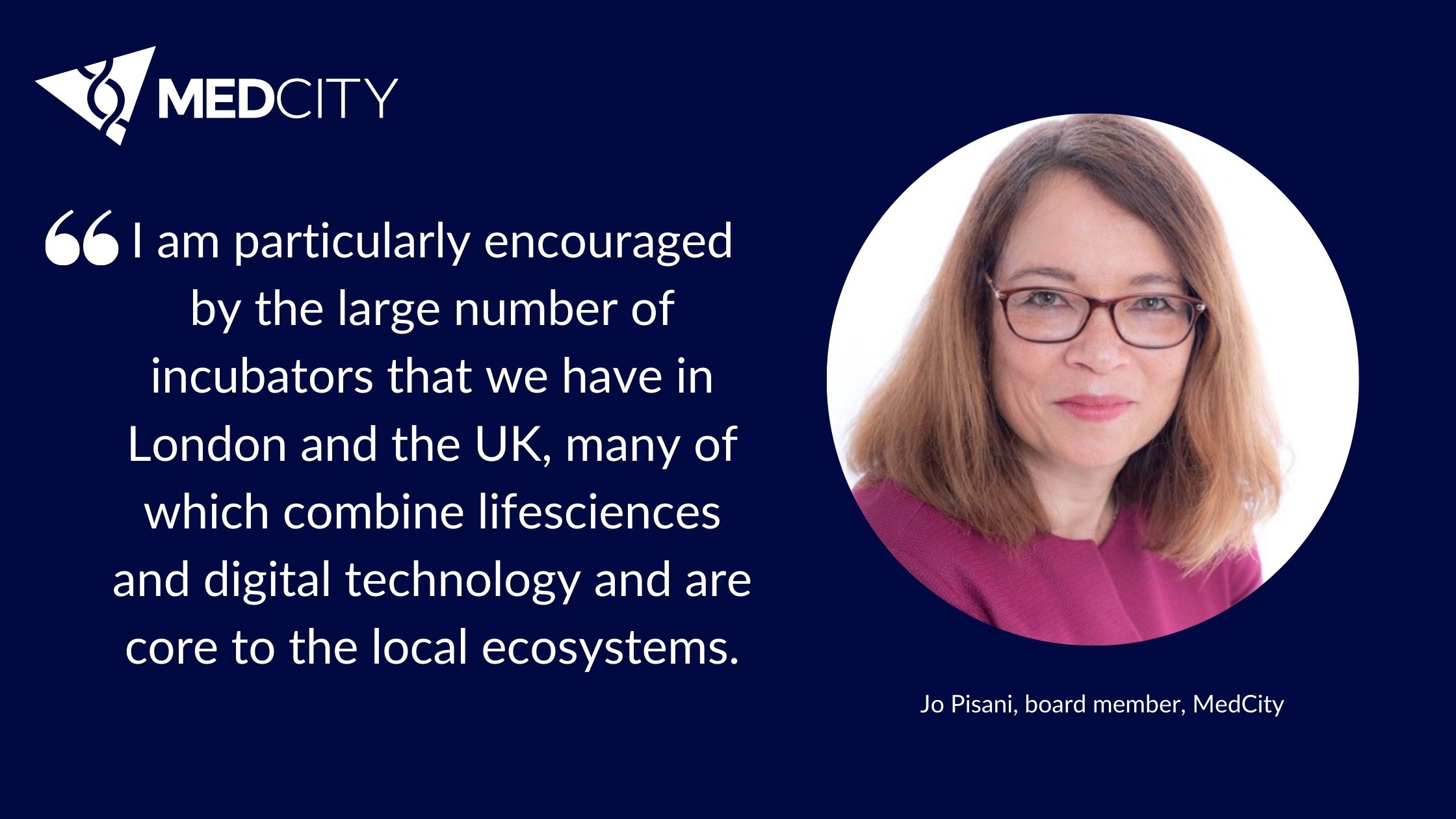
Interview: lifesciences continue to play a crucial role in the UK’s competitive landscape
Here we talk to new board Member Jo Pisani, who is a passionate supporter of critical public health issues with a 35-year career in industry and consulting.
In 2017 a study you did with PwC identified the UK’s competitiveness in life sciences as being down to academic and leading-edge science, workforce & skills, and access to new medicines. How are we fairing in those areas three years on?
Three years on we have certainly seen the strength of UK academia and leading-edge science come to the fore in the Covid-19 response. In addition to the vaccine breakthroughs, we have seen game changing repurposing of existing drugs for Covid through the RECOVERY trial as well as innovative diagnostics and use of data. I’m particularly pleased by the innovative collaboration we have seen between regulators, government, academia and industry to develop and manufacture vaccines so rapidly. The strength of the UK biotech industry has been recognised by global investors too with 2020 another record breaking year for biotech funding with over £1.1 billion of fresh equity raised by UK biotechs (double that in 2018 and 2019 combined). We continue to see novel pricing and market access schemes in place and initiatives to speed the uptake of innovation such as the accelerated access collaborative. This vibrant environment then stimulates the people and skills agenda, our report noted that jobs in lifesciences deliver the highest level of gross value added per head (GVA) to the UK economy of all sectors.
What are the main areas of opportunity for collaboration across industry, the NHS, Government, and patients? How can MedCity help?
All these stakeholders are motivated to improve the health of UK citizens. The key is to develop collaborative, trusted networks between all parties to make sure that the true potential of innovation can be realised. I also represent patient groups and see the voice of the patient becoming stronger, patients are consulted earlier on in the development of innovations in lifesciences and own a key part of equation, namely clinical and patient reported data. The breadth of stakeholders is also increasing as we look to innovations that combine drug, device, digital and diagnostics. MedCity plays a key role here in developing the vision for future collaboration and convening the right stakeholders in a timely and objective manner to work on the strategy to achieve the vision.
You have a wealth of experience helping Pharma and Lifesciences clients with their global growth strategies – how do you think local small innovative companies are developing at the moment, and what the opportunities?
I find working with small innovative companies the most rewarding. Generally, the technology is exciting and the teams committed and passionate about making a difference. As I mentioned earlier, the funding environment is very positive, through I do see companies having to work harder to raise funding – having to meet many more investors for example and making sure their business plans aligns well with investor objectives. I am particularly encouraged by the large number of incubators that we have in London and the UK, many of which combine Lifesciences and digital technology and are core to the local ecosystems. MedCity is excellently placed to help companies navigate the Lifesciences environment.
What excites you most about working more closely with MedCity?
I’ve been an advisory board member for MedCity since it was established and look forward to my role on the management board to help shape and execute the MedCity strategy with the team. I am particularly interested in advanced therapies and digital/data where London has great strengths. It’s great to work with the three AHSC’s in London with a broad range of research areas and translation opportunities. Finally as a Londoner from birth I am proud to work with MedCity to stimulate economic growth for our wonderful city – I was thrilled to see the work of the MedCity team has contributed to over £22m GVA for London through inward investment.
About Jo
After a 35-year career in industry and consulting, Jo is now focused on supporting charities, universities and business start-ups. She is on the board of the UK Dementia Research Institute, The RSA Group and Findacure. She is also on the advisory board for University of Birmingham and a NED and strategic advisor for several UK biotech companies. Prior to this she led PwC’s UK Pharmaceutical and Life Sciences practice and started her career with BP and GSK. Jo is a passionate supporter of critical public health issues, such as tackling dementia, addressing anti-microbial resistance and innovating in rare diseases.